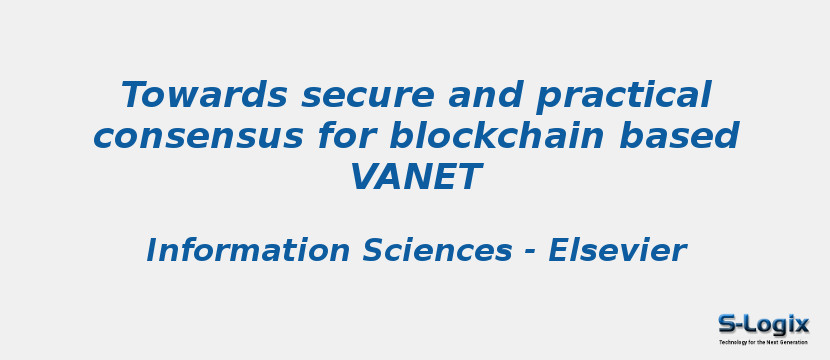Research Area: Vehicular Ad Hoc Networks
The massive adoption of the blockchain-based distributed framework has made it possible to store and transmit Vehicular Ad Hoc Network (VANET) application data transparently, securely, and without a central control point of trust. Introducing an efficient and scalable consensus mechanism, which is one of the most crucial components in the blockchain-based VANET application, is still an open research challenge, given the features related to high mobility vehicular network and resource constraint devices in vehicles. Considering the efficiency, fairness and scalability issues of state-of-the-art consensus protocols like Proof of Work (PoW), Proof of Stake (PoS) and Practical Byzantine Fault Tolerant (PBFT), in this paper we propose a new technique called Proof of Driving (PoD), to randomize the selection of honest miners for generating the blocks efficiently for blockchain-based VANET applications. Additionally, we introduce a filtering technique based on Service Standard Score () of the vehicular miner nodes to detect and eliminate the malicious nodes. Our proposed technique achieves an efficient and fair selection of miners in a blockchain-based VANET application (for example, ride-sharing) and it makes PBFT consensus adaptable in a vast public vehicular network. The proposed method also addresses the efficiency and fairness issues caused by PoW and PoS, respectively. Our extensive experimental results reflect that the proposed method is efficient as well as scalable and, more importantly, achieves smaller consensus sets with higher quality to eliminate the malicious vehicle nodes from participating in consensus. Finally, the security analysis shows that the proposed method is secure and fault-tolerant against various attacks.
Keywords:
Author(s) Name: Sowmya Kudva,Shahriar Badsha,Shamik Sengupta,Ibrahim Khalil,Albert Zomaya
Journal name: Information Sciences
Conferrence name:
Publisher name: ELSEVIER
DOI: 10.1016/j.ins.2020.07.060
Volume Information: Volume 545, 4 February 2021, Pages 170-187
